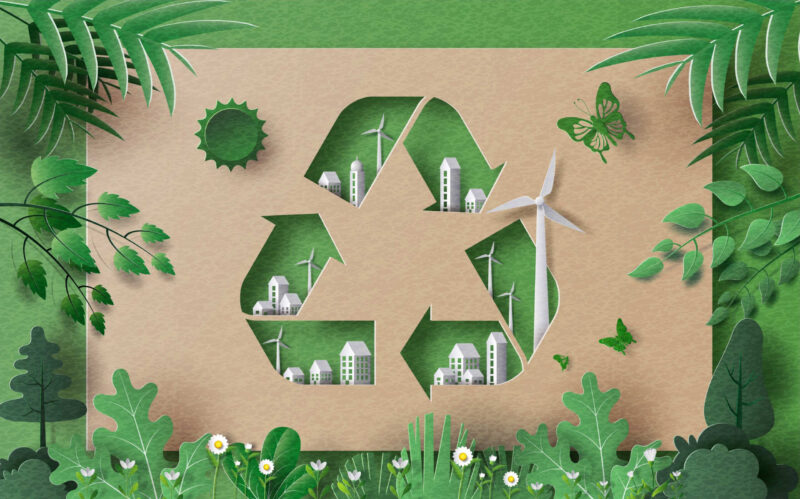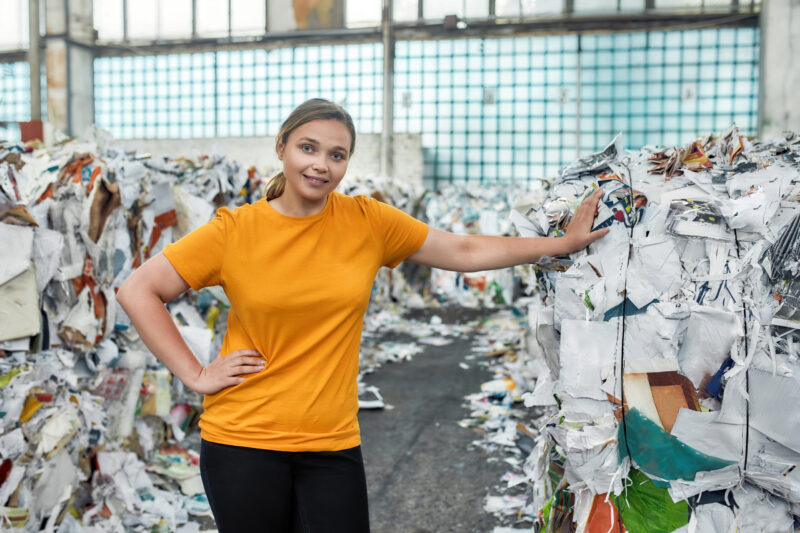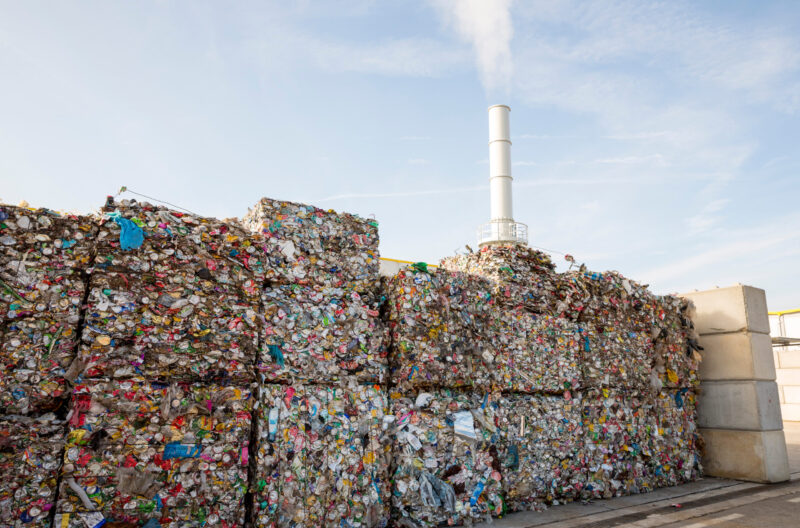
This site
is mobile
responsive

Solid waste management is a challenge to global economies as the world population increases. The world’s municipal solid waste (MSW) is 2.01 billion metric tonnes annually of which, 33 per cent is not adequately managed in an environmentally safe manner. The waste generated per person per day averages 0.74 kilograms and ranges widely from 0.11 to 4.54 kilograms, whereas ASEAN’s per capita MSW generation is 1.14 kg/capita/day. The lack of solid waste planning and financial investment in waste management has resulted in inadequate and poorly operated facilities contributing to environmental pollution, which is hazardous to public health.
In Malaysia, the population is increasing rapidly, reaching 32.8 million in 2021, generating a tremendous amount of solid waste, which is estimated to be 38,427 metric tonnes per day in 2021 (1.17 kg/capita/day). Of which, 82.5 per cent is disposed in landfills. By 2022, the amount of MSW collected would be 14 million metric tonnes per annum, enough to fill the Petronas Twin Towers every seven days. Therefore, there is an urgent need to respond to these mounting issues and provide new facilities as Malaysia’s rate has exceeded the Japan International Cooperation Agency (JICA) study’s proposed rate of 30,000 metric tonnes per day in 2020 for Malaysia. Meanwhile, the Solid Waste Corporation (SWCorp) reported that the recycling rate achieved in 2020 is 30.67 per cent and is lower than other developed countries such as Singapore (59 per cent), Korea (49 per cent), and Taiwan (60 per cent).
Addressing these concerns, the Government seeks to increase the recycling rate of household waste to 40 per cent under the Twelfth Malaysia Plan (12MP). This five-year development roadmap from 2021 to 2025 aims to advance green growth by implementing a clean, green and resilient development agenda with a whole-of-nation approach. Waste will be managed holistically and sustainably by enforcing waste separation at the source and intensifying the reduce, reuse and recycle (3R) initiative. Waste separation and recycling facilities will be enhanced, particularly in residential, institutional, and commercial areas. These efforts are in line with the National Cleanliness Policy 2019 to reduce waste pollution as well as to promote the circular economy and waste-to-wealth initiatives.
As Malaysia commits in supporting the circular economy, other areas that are emphasised include adopting the extended producer responsibility approach, user-pays and polluter-pays principles, as well as self-regulation among industries. The circular economy principles are applied in the form of sustainable sourcing or designing, enabling production waste to be fed back into the process to make other products or eventually to generate renewable energy, i.e. waste to energy (WtE). Businesses are encouraged to leverage economic instruments, environmentally motivated subsidies, existing green financing incentives and tax incentives to support their green activities.

The establishment of the Department of National Solid Waste Management (Jabatan Pengurusan Sisa Pepejal Negara- JPSPN) is one of the catalysts for the Government to achieve the recycling rate target set by the National Green Agenda of 40 per cent by 2025. JPSPN undertakes the responsibilities of solid waste management under the Solid Waste Management and Public Cleansing 2007, Act 672 (Akta Pengurusan Sisa Pepejal dan Pembersihan Awam 2007, Akta 672), which has been in force since 1 September 2011. Nonetheless, the Act was only adopted by the Federal Territories of Kuala Lumpur and Putrajaya, Pahang, Negeri Sembilan, Melaka, Johor, Kedah and Perlis. The waste management of other states in Malaysia, i.e. Perak, Pulau Pinang, Kelantan, Selangor, Sabah and Sarawak, are handled by the respective State Governments.
Utilising Technology in Solid Waste Management
A landfill is the most common MSW disposal method due to the simple disposal procedure, low cost, and landscape-restoring effect. Approximately 82.5 per cent of waste collected is disposed of at these dumping sites and other negligible portions are treated, reprocessed, or dumped illegally. However, there are issues related to the construction of solid work disposal sites, including no proper engineering plan and landfill bottom liner system due to a lack of funding to upgrade the landfill sites and lenient enforcement. The Government has spent RM1.9 billion for solid waste collection and public cleansing; however, JPSPN reported that the landfills could not be relied on anymore because there are too many saturated landfills in Malaysia. According to JPSPN, there are 137 landfills in operation all over Malaysia which includes 21 sanitary landfills, while 174 were already closed.
Based on data collected, only five per cent of waste are sent to small-scale thermal treatment plants in several locations such as Cameron Highland, Pangkor, Langkawi and Tioman. Without proper solid waste management methods or technologies, dependency on landfills will continue to intensify as waste collection increases throughout Malaysia.
Therefore, as a long-term solution, the Government plans to construct an Integrated Waste Treatment Facility. The target is to have at least one WtE plant in each state to move away from being dependent on solid waste disposal sites. This facility can treat various types of solid waste and achieve a mass reduction of at least 80 to 90 per cent of the quantity of solid waste disposed to landfills. It will indirectly extend the life of a landfill and reduce the opening of new landfills. The facility will contain material recovery facilities and use technologies such as the WtE thermal treatment plant, where unrecycled solid waste can be converted into heat, steam and renewable energy to be reused.
The Ministry of Housing and Local Government (KPKT) through JPSPN plans to implement seven (7) WtE solid waste treatment plants in the states that have adopted Act 672. The construction of a centralised sanitary solid waste landfill and WtE plant will consider the waste generation capacity and distance of the collection area to ensure more optimal and efficient solid waste management. However, the construction will be implemented in stages to ensure that the technology is effective, practical and cost-efficient.
Reducing Commercial Waste
Aside from consumer and household waste, the focus has also encouraged firms to reduce commercial waste generated from manufacturing activity. Aimed at curbing waste generation, the Government provides targeted incentives to companies that undertake recycling of waste such as toxic and non-toxic waste, chemicals and reclaimed rubber. These companies can be considered for a Pioneer Status with 70 per cent tax exemption on the statutory income for five (5) years or an Investment Tax Allowance (ITA) with 60 per cent tax exemption on the qualifying capital expenditure incurred within five years.
As of September 2021, a total of 372 recycling projects were approved with a total investment of RM15.13 billion. The companies involved are mainly from the paper, printing and publishing industry with investments of RM6.11 billion, followed by the chemicals and chemical products industry (RM3.17 billion) and the rubber products industry (RM2.15 billion).
In exploring more integrated waste management solutions, the Government, through Budget 2020, has extended the Green Technology incentive to 31 December 2023, which was introduced in Budget 2014.
The incentive is expected to encourage firms to rethink their approach by incorporating waste management techniques that include collection, storage, composting and disposal with other core recycling, recovery or waste treatment activities. This aims to further strengthen the green technology ecosystem in Malaysia and enhance firms’ operations to include a more holistic approach to waste management. In addition, companies are also encouraged to undertake WtE activities to supply the energy generated to the global grid or for their consumption.
The rise in environmental degradation in developing countries can no longer be ignored. As the population grows, the increasing waste generation, urbanisation and open dumping ensuing the lack of landfill capacity are causing mounting environmental concerns. Despite policies to encourage consumer waste management through recycling efforts, it is significantly noticeable that the main contributor to waste is the externalities from industrial processes. Therefore, there is a greater need to incorporate and shift to integrated and sustainable waste management practices at all levels to improve and maintain environmental quality.

Source: MIDA e-Newsletter December 2021